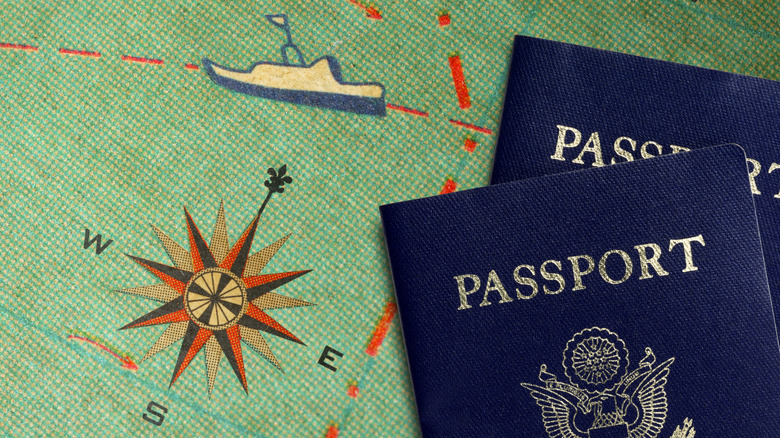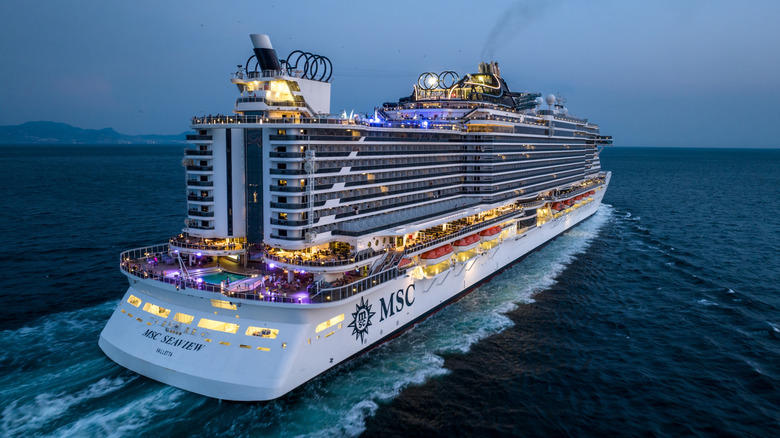Why It's Important To Never Go On A Cruise Without Your Passport
One of the best parts of being a U.S. citizen is the ability to carry a U.S. passport. With rare exceptions and minimal paperwork, these little blue booklets can get you across almost any border in the world. You may need an elusive visa now and again, and some nations are difficult or impossible to enter (Yemen, North Korea), but this document is extremely powerful. Citizens of Pakistan or Bangladesh can only access a few dozen countries without visas; people with a U.S. passport can travel visa-free to many top destinations.
Some sovereign nations don't even require U.S. citizens to carry passports at all, as long as they arrive by cruise ship. If you travel on a closed-loop cruise, which begins and ends in a U.S. port, you can set foot in the Bahamas without stamping, or even showing, your passport. The same theoretically goes for the Yucatán Peninsula in Mexico and the island of Bermuda. Instead of a passport, passengers can show improved U.S. identification, such as an Enhanced Driver's License (or Real ID), to confirm citizenship.
Our advice: bring your passport anyway, especially for Caribbean cruises. You should even make sure it's still valid for the next six months; if it's not, now is the perfect time to renew your passport. This may sound like an unnecessary risk or hassle; why take something so valuable if you don't actually need it? But here's the thing: What if you do need it? A lot of issues can arise on a cruise, and the last thing you want is to unexpectedly show up in a foreign country without proper documentation.
Why should you bring your passport on a cruise?
More than 30 million people traveled on cruise ships in 2023. It's rare that a cruise ship runs into serious problems, and most folks return home with stories, photos, and contact information for a boatload of new friends. Cruise companies do everything they can to keep their guests happy and healthy, and there are lots of ways passengers can ensure their own well-being.
But a lot of things can go wrong, as well. You could get sick. You could fall down a staircase and break your leg. When you reach a port, you could get waylaid somewhere inland, forcing the ship to leave without you. Ships at sea could experience serious storms or rogue waves. Every now and again, a cruise ship will run aground or even collide with another ship. Believe it or not, there have been six confirmed attacks on cruise ships by pirates since 2005. In each of these cases, individual passengers — or even whole ships — may require an emergency stay in a foreign port. Not having your passport could lead to serious bureaucratic headaches, including visits to the U.S. Consulate and extended stays in a strange city that you're not permitted to leave. In case this does happen, here is everything you need to know about getting an emergency passport.
These events are less likely on domestic cruises, such as itineraries along the East or West Coast. But even a trip to Alaska could require emergency assistance on the coast of Canada, whose border requires passports from U.S. citizens. With luck, you'll never have to hand that passport over to anyone. But when it comes to travel on the high seas, you're better safe than sorry.

